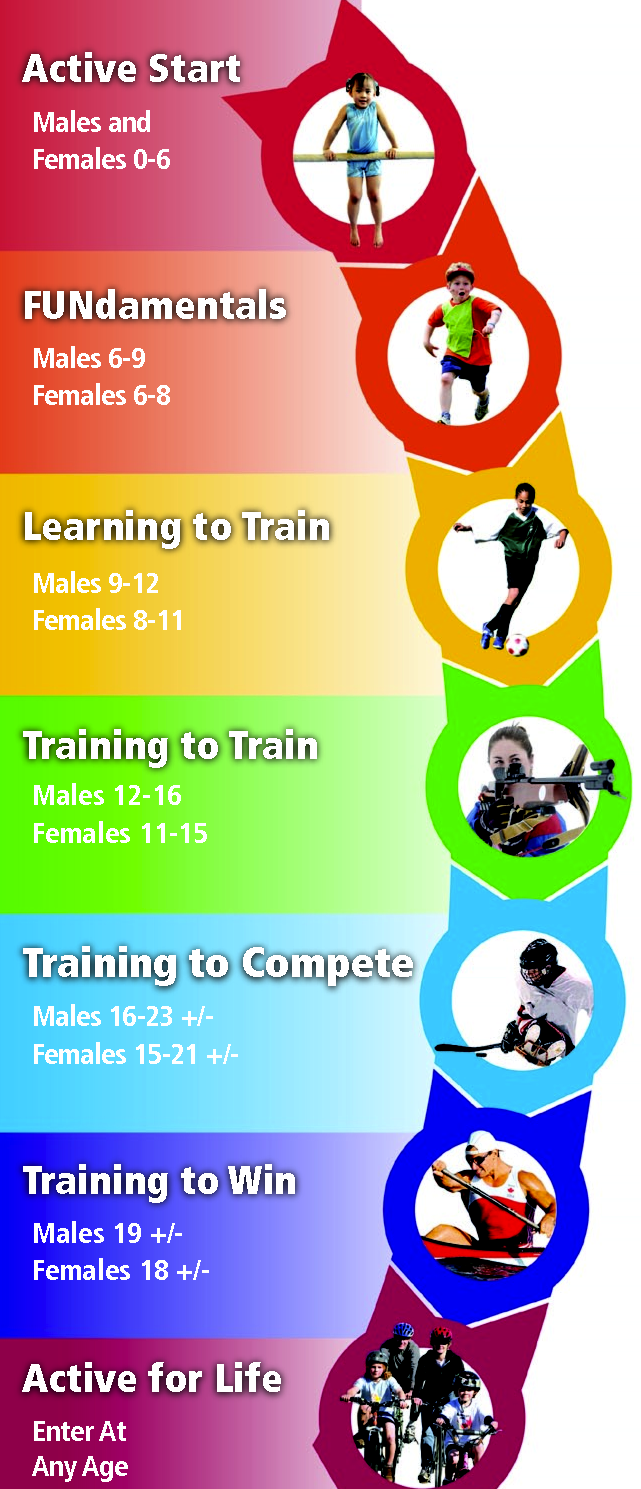 In planning for the sporting excellence and well-being of Canadians, Sport Canada has launched a resource rich website focused on long-term athlete development.
In planning for the sporting excellence and well-being of Canadians, Sport Canada has launched a resource rich website focused on long-term athlete development.
“This website describes a model of Long-Term Athlete Development (LTAD), a training, competition, and recovery program based on developmental age — the maturation level of an individual — rather than chronological age. It is athlete centred, coach driven, and administration, sport science, and sponsor supported. Athletes who progress through LTAD experience training and competition in programs that consider their biological and training ages in creating periodized plans specific to their development needs.” –Sport Canada
…
Long-Term Athlete Development (LTAD) is based on worldwide sport research, coaching best practices, and scientific principles. LTAD expresses these principles, research, and practices as 10 Key Factors essential to athlete development.
10 KEY FACTORS
To optimize the development of our athletes, we need to take advantage of the best sport science and best practices in coaching and training. Long-Term Athlete Development (LTAD) does this by codifying important elements of sport science and coaching practices into the 10 Key Factors of LTAD:
- 10-Year Rule
- FUNdamentals
- Specialization
- Developmental Age
- Trainability
- Physical, Mental, Cognitive and Emotional Development
- Periodization
- Competition Planning
- System Alignment and Integration
- Continuous Improvement
REQUIRED READING
While working as a national development coach with Canada Basketball, I mandated this as essential reading for both basketball coaches and parents of national team identified athletes.
Now, I can’t mandate it for you too. (Believe me, I wish I could!) What I have found is that those that are interested in stretching themselves into becoming world class teacher-coaches, love this kind of stuff.
Hop into a comfy chair, grab a nice drink along with a snack, and give it a read. There’s a lot to take in, ponder and put into action.
/sef.